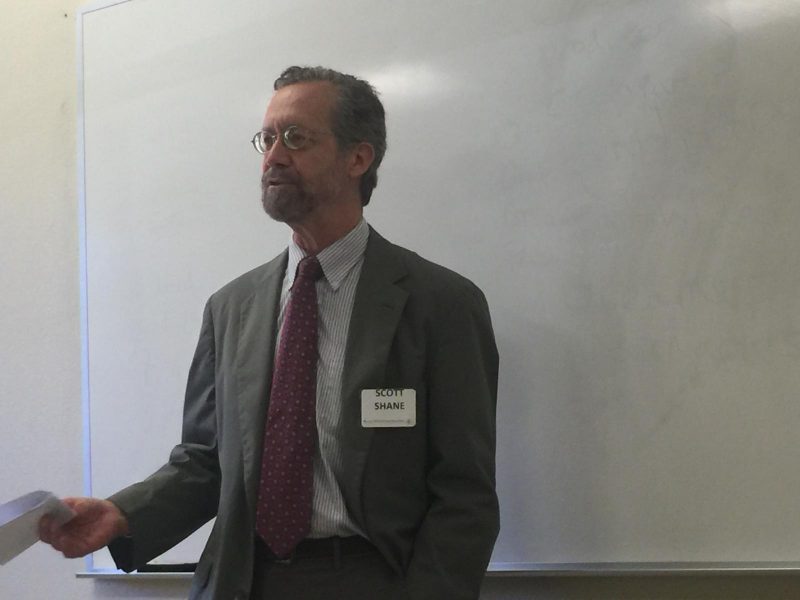“This was an attack that involved no Russian tanks, no Russian missiles, no Russian bullets,” New York Times reporter Scott Shane told a UNM audience, “this was information warfare that the U.S. had never experienced before.”
Shane covered the Russian hacking on the 2016 presidential election since it first began. Shane is a New York Times reporter working in the Washington bureau and covers national security issues.
Shane says Russia used its cyber capabilities to access classified information and release it. The release eventually sparked an investigation lead by both chambers of Congress, which Shane and the New York Times covered.
“In some ways Hillary Clinton’s campaign was targeted precisely with this new set of weapons,” Shane said.
Shane said the attacks began in September 2015 in Washington when the Democratic National Committee (DNC) was discussing the presidential candidates. He says FBI Agent Adrian Hawkins called the DNC and connected with an information technology (IT) technician. Agent Hawkins tried alerting the committee U.S. intelligence picked up evidence Russian hackers broke into the DNC computer network and were roaming around inside.
“Completely shocking and appalling,” Shane said.
Shane said Democratic leadership did not learn about the foreign power inside its email archive until seven months later. A few months later, intelligence officials finally informed President Obama and then presidential candidate Trump about the Russian hacking.
“They were informed that for the first time in American history a hostile state deliberately and powerfully intervened in a U.S. election with the goal of directing the outcome,” Shane said.
Shane says a Russian official may have telegraphed Russian intentions at a Moscow cyber conference on February 2016. Shane cites a Washington Post article quoting the Russian official as saying then, “I am warning you we are on the verge of having something in the information arena that will allow us to talk to Americans as equals.”
Shane said the biggest attack happened days before the DNC when Wikileaks revealed a huge collection of DNC emails exposing communications between party officials.
“They weren’t especially surprising but there was sarcasm and snark about Bernie Sanders in particular who had not been a Democrat for most of his career,” Shane said.
Sanders supporters were outraged and DNC chairwoman Debbie Wasserman Schultz resigned the night before the convention.
“I think these (Russia hacking) implications we don’t entirely understand,” Shane said.
Shane says it is not entirely clear if the Russian hackers were trying to help Trump or hurt Clinton, or both. But Shane says it is no secret Russian President Putin hates Clinton, blaming her for instigating demonstrations against him and his government in 2011.
“He feared what a Clinton presidency might be,” Shane said.
Shane participated in a two day symposium held at the University of New Mexico (UNM) hosted by the National Security Studies Program. The symposium focused on “global and national security challenges and opportunities facing the new administration.”
Follow Jacob on Twitter
